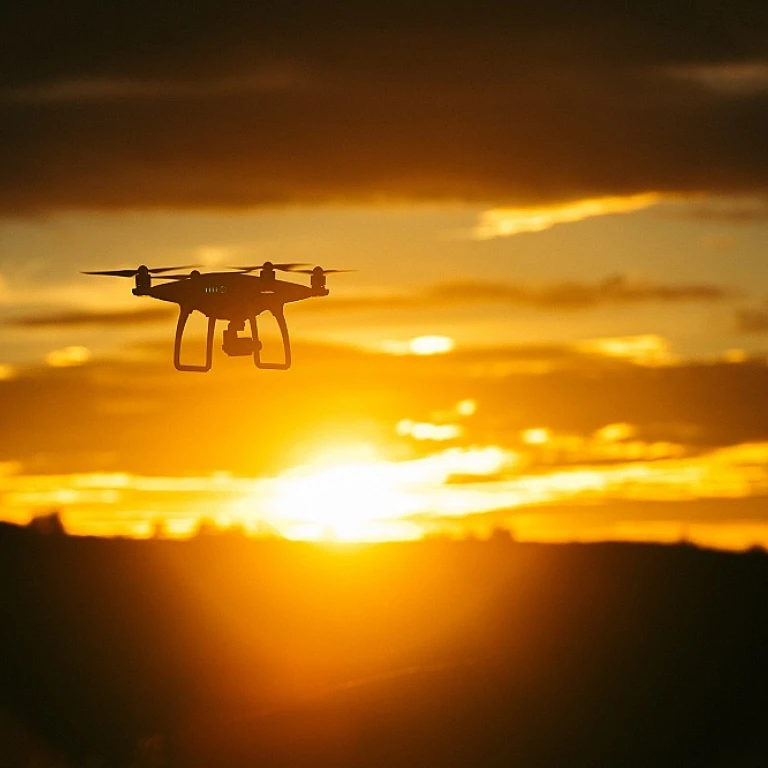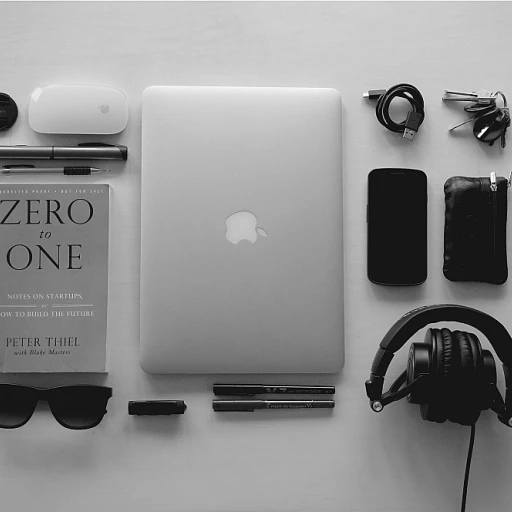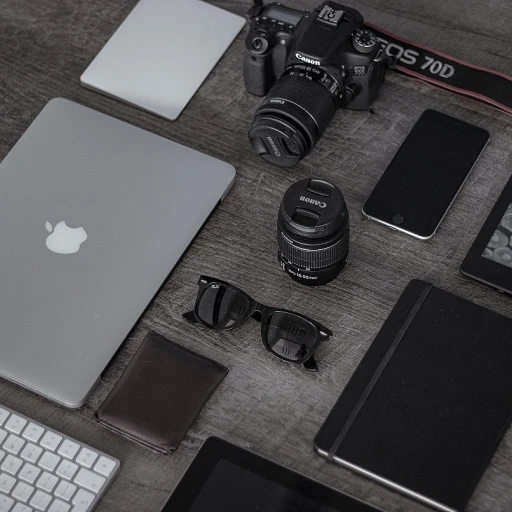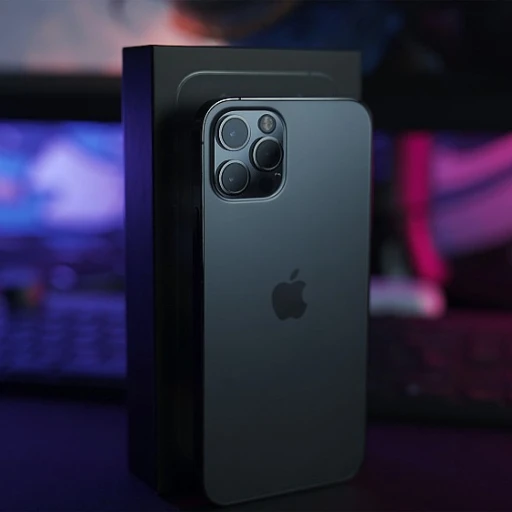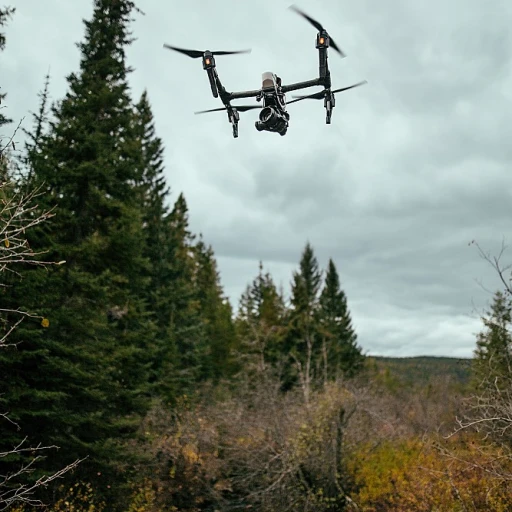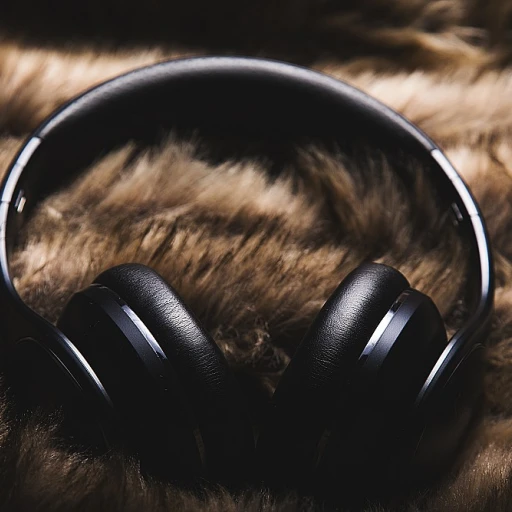
Understanding Sleep Apnea and Its Impact
Recognizing the Impact of Sleep Apnea
Sleep apnea is a prevalent condition that often goes undiagnosed, affecting both the quality and duration of one's sleep. This condition, characterized by repeated interruptions in breathing during sleep, commonly results in disrupted sleep stages like REM and deep sleep. The consequences can be detrimental, including increased daytime fatigue, a higher risk of heart rate irregularities, and even broader health implications. Living under the constant threat of obstructive sleep apnea or central apnea can curtail one's sense of wellness. Sleep quality becomes a critical factor to monitor for anyone striving to maintain a balanced life. Emerging health technologies, such as Fitbit and other luxury sleep tracking devices, offer a reactive change, utilizing advanced sensors to track sleep patterns meticulously over time. The heart of the challenge in tackling sleep apnea lies in effectively monitoring the condition. Devices that track heart rate and blood oxygen levels serve as complimentary tools alongside traditional treatments like CPAP machines. Through consistent sleep tracking, it's possible to gauge significant improvements in sleep health, as these devices can potentially detect sleep disturbances and provide critical data over time. The ability to diagnose sleep conditions such as apnea with fitness trackers like the Fitbit device bridges a gap in traditional medical approaches. For individuals seeking an understanding of their health outside clinical environments, such devices furnish essential insights into their breathing patterns, offering a clearer picture of sleep apnea's impact. Exploring the realm of high-end spy camera pens can provide additional intrigue when considering methods to unobtrusively collect data on sleep behavior, providing yet another dimension to the conversation surrounding luxury health tech. It becomes evident that the intersection of lifestyle and health through such advanced wearables offers a promising avenue to promote better sleep habits and address the silent repercussions of apnea sleep effectively. As research advances, potential collaborations between technological innovations and medical expertise could pave the path towards holistic sleep health solutions, altering how society perceives and manages this pressing health concern.The Intersection of Luxury and Health Tech
The Marriage of Premium Design and Health Innovation
Luxury tech gadgets stand at the intersection of opulence and functionality, and addressing sleep apnea with style is no exception. The fusion of high-end design and advanced health tracking features makes wearables like Fitbit a sought-after choice for those who desire both utility and prestige. By delivering data insights with a sleek finish, Fitbit seamlessly integrates into the lifestyles of health-conscious individuals who prioritize both aesthetics and wellness.
With the rise of sleep health awareness, devices now prioritize tracking vital sleep parameters such as sleep stages, heart rate, breathing patterns, and blood oxygen levels. Insomniacs and apnea sufferers find solace in technology that alerts them to sleep irregularities, potentially revolutionizing their sleep routines. This focus on comfort and non-invasiveness is a game-changer for individuals who are wary of traditional methodologies like CPAP machines. The elegance of Fitbit's design ensures that wearers experience the benefits of sleep medicine without feeling bogged down by cumbersome devices.
Wearables like the Fitbit go beyond basic tracking by offering insights into sleep quality, detecting sleep onset and obstructive sleep patterns, and even highlighting the crucial balance between deep sleep and REM stages. This data-driven approach provides users with the knowledge they need to take proactive measures in improving their sleep well-being, effectively merging luxury with health innovation.
Fitbit's Advanced Sleep Tracking Features
Unlocking the Secrets of Sleep: Fitbit's Cutting-Edge Tracking Features
In the realm of luxury tech, where health meets elegance, the integration of advanced technology in wearable devices like Fitbit is reshaping our understanding of sleep. Fitbit's advanced sleep tracking features are at the forefront, offering a sophisticated interface that does more than just track sleep time. These devices aim to unravel the nuances of sleep health, making them an indispensable tool for those eager to enhance their nightly rest. Fitbit devices employ impressive technology to monitor various sleep stages, such as light, deep, and REM sleep. By harnessing data points like heart rate and blood oxygen levels, these wearables provide a comprehensive overview of your sleep patterns. For sufferers of sleep apnea, these devices can be particularly beneficial. Fitbit detects sleep disruptions and even computes breathing rates, which might indicate potential sleep apnea episodes. Though these devices are not substitutes for professional CPAP machines or medical evaluations, they can serve as a preliminary study to highlight potential issues. The capacity to track sleep stages and gather such detailed data sets Fitbit apart from many other mainstream health gadgets. Whether you're comparing it to stalwarts like the Apple Watch, which also boasts robust health monitoring capacities, or the intricacies of other fitness trackers, Fitbit carves out its niche with a focus on sleep quality. Its watch evidently bridges the gap between a luxury item and a medical tool, without compromising on style or functionality. Moreover, the Fitbit app complements the device, allowing users to dive into detailed analytics about their sleep onset, quality, and even the impact of nightly routines. With practical feedback and suggestions, Fitbit not only tracks but also promotes better rest hygiene. For those looking to enhance their sleep health, understanding the cost of such technology is crucial. To explore the cost of Enabot Ebo Air in GBP, a comprehensive approach might offer insights into how these devices balance luxury with utility. Indeed, Fitbit's technology is not just about collecting data but transforming it into actionable insights for a healthier, more rejuvenating sleep regime.Comparing Fitbit with Other Luxury Health Gadgets
How Fitbit Stands Amongst the Competition
Fitbit has established itself as a key player in the world of luxury health gadgets, particularly with its advanced capabilities in sleep tracking. The Fitbit device excels in identifying different sleep stages such as light, deep, and REM sleep. Through its sophisticated sensors, the watch monitors heart rate, heart rate variability, and blood oxygen levels, providing insights into users' sleep health and overall wellness. This emphasis on comprehensive tracking is critical for individuals dealing with sleep apnea, a condition characterized by obstructive breathing issues during sleep. The Fitbit app effectively aggregates data, equipping users with valuable insights to inform discussions with healthcare providers, although it should not replace CPAP machines or professional diagnosis. When comparing Fitbit to other luxury health devices, two popular alternatives are the Apple Watch and other fitness trackers. Apple Watch, while delivering exceptional overall functionality, offers sleep tracking capabilities that may not be as detailed as Fitbit's. Fitbit focuses on the link between sleep apnea and health, distinguishing its products with an assortment of study-backed features tailored to track sleep onset, stages, and quality more comprehensively. Moreover, Fitbit devices captivate users with their unparalleled ability to detect sleep apnea symptoms, thanks to the incorporation of advanced data analytics. While the Apple Watch provides a broader range of functionalities, Fitbit maintains a niche focus on sleep health, appealing to those particularly invested in addressing apnea sleep issues.User Experiences: Real Stories from Fitbit Users
Insights from Users: A Glimpse into Fitbit's Effectiveness
The effectiveness of Fitbit in managing sleep health is best gauged through the lived experiences of users who have incorporated these devices into their daily routines. These fitness trackers, renowned for their advanced technology, have made significant strides in monitoring sleep apnea and improving sleep quality.
Among the features most lauded by users is the device's capability to track sleep stages including REM and deep sleep, providing insights into sleep onset and overall sleep quality. The Fitbit device effectively measures heart rate and blood oxygen levels throughout the night, which helps in detecting episodes of obstructive sleep and identifying typical patterns of breathing irregularities.
Several users have shared that comparing data from their Fitbit watch with results from professional sleep studies and CPAP devices has borne impressive parallels. The data recorded by Fitbit often aligns closely with that of medical-grade equipment, illustrating its potential role in diagnosing sleep issues. The fitbit app offers easy-to-use functionalities for tracking sleep patterns, allowing users to review in-depth data over time.
Feedback from users also highlights how Fitbit stands as a comparator to other luxury health gadgets like the Apple Watch. While both wearable devices offer sleep tracking capabilities, many find Fitbit's focus on detailed sleep metrics and stages to be particularly beneficial for understanding apnea sleep conditions.
Real user experiences culminate in the shared sentiment that by consistently monitoring their oxygen levels, heart rate, and sleep stages, they achieve enhanced sleep health. They value the personalized insights provided by the Fitbit app and appreciate its seamless integration into both their sleep hygiene routines and broader health monitoring strategies.
The Future of Luxury Health Tech
Innovations Shaping Tomorrow's Luxury Health Tech
As we gaze into the horizon of luxury health technologies, the evolution of devices such as Fitbits and Apple Watches reflect a paradigm shift towards more integrated and comprehensive health monitoring solutions. The white noise of luxury tech is transformed into a symphony of features that currently track sleep patterns, heart rate, blood oxygen levels, and even subtle breathing irregularities during various sleep stages. The increased sophistication of these devices heralds a new era where pinpoint accuracy in tracking sleep onset and apnea sleep disturbances is not just a possibility but a reality. These innovations enable wearables to prompt proactive health actions before they become major concerns.- Enhanced Data Integration: Future devices are anticipated to integrate even deeper data, not just tracking heart rate or detecting sleep stages but potentially diagnosing obstructive sleep apnea with greater accuracy. This enhances the sleep quality assessments that users already receive.
- Artificial Intelligence and Machine Learning: Utilizing cutting-edge AI, wearables will further learn and adapt to individual patterns. This could lead to personalized health recommendations tailored specifically to unique lifestyle needs and conditions.
- Connectivity and Interoperability: The seamless connection between devices, apps, and medical professionals is becoming essential. The ability to synchronize aesthetically pleasing wearable technology with professional-grade health networks promises a personalized health ecosystem—bridging the gap between everyday wellness and critical medical insights.

